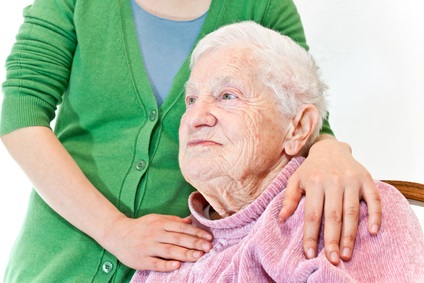Five Tips for Successful Caregiver Respite
Who can you trust to take care of your dear loved one while you take a vacation or attend a family event? How can you get other tasks accomplished as a full-time caregiver for an elderly parent or spouse? Caregivers need to rest and recharge, and there are many times when necessity pulls a caregiver away from their care recipient as well.
Respite is defined as a period of rest or a break. For caregivers, this might mean a vacation or taking a few days to attend an important event, or daily or weekly opportunities to continue with outside activities, run errands, etc. But, guilt and anxiety often keep caregivers from taking a vacation or even a short break. Or, you might have had a horrible experience in the past trying to take such a break and now you feel it is not worth the trouble. Over the years, we have worked with many families to arrange for respite with the peace of mind that everything is set up to go as smoothly as possible. We promise, it can be done!
Here are our eldercare experts’ tips on setting up a successful caregiver respite:
- Put a trustworthy, experienced care team in to place. This is the piece to handle most carefully. If you have loved ones or friends who will help out, consider support they might need and challenges they might face. Just because you handle everything for Mom does not mean your sister will be so well-equipped to do so. You might want to spend a few days together first going over things and having your loved one observe what you do before deciding if additional support is needed. If you hire caregivers to help, research carefully and know the reputation of the company (and, yes, we do emphasize company, because we believe the protections and backup you get with a company is the best way to ensure successful care). Talk to the company about how they will handle different situations and what they do to ensure their caregivers understand how to take care of your loved one.
- Think through your routine and what someone coming in fresh would need to know to do your job. There are a lot of things you do for your loved one that you might not even think about anymore. It really helps substitute caregivers to understand the routine and little things about your loved one and their care.
- Get organized. Make sure you leave a list of contact information, a complete medication list and history. You will need to leave copies of advance directives and local/alternative contacts (particularly if you are traveling someone where you might be inaccessible or difficult to reach due to timing). Can substitute caregivers easily access everything they might need while you are gone?
- Consider having a “manager”. If you are doing a short, local break this may not be much of an issue, but for longer trips and times when you may be further away (and to ensure you get a “real” break), you should consider putting someone else temporarily “in charge”. This doesn’t mean that you won’t be contacted if there’s a major emergency, but it can be useful to empower someone to oversee things and handle any immediate needs that arise. You will need to talk to providers ahead of time about permission for someone else to be involved with care (i.e. if your sister is coming in to help but does not usually attend your Mom’s doctor’s appointments). You can also hire a geriatric care manager for the respite period; they are experienced in handling this sort of situation and can give you great peace of mind. The care manager can also help you prepare and anticipate potential concerns to make things go smoothly.
- Practice. It may help to take a quick break or try to just run some errands locally to “test the waters”. This gives substitute caregivers the chance to come up with any questions and you and your loved one the chance to get comfortable with the situation (or realize something that needs to be changed). Regular respite can be a good idea for you to keep revitalized as a caregiver, but also to help you and your loved one build a relationship with a care team. We’ve found this to be a great solution for families. We have worked with many over the years where we help out regularly so that they can enjoy their breaks with someone they know and trust is in place to manage things.
You can get more great tips from EasyLiving’s “What is Respite Care?” post (including a checklist you can use to set up and prepare for respite care). Contact our Senior Care Consultant to set up respite care, hire a care manager to help organize and oversee your break and for any eldercare concerns or questions.


 Popular Downloads
Popular Downloads


 Get Our Newsletter!
Get Our Newsletter! Mission Statement
Mission Statement

